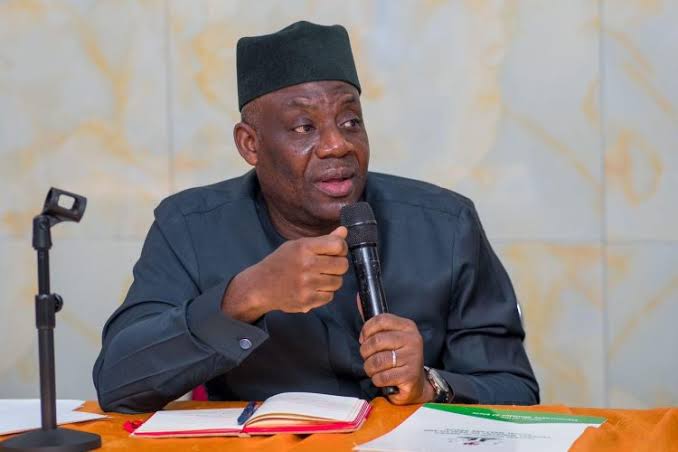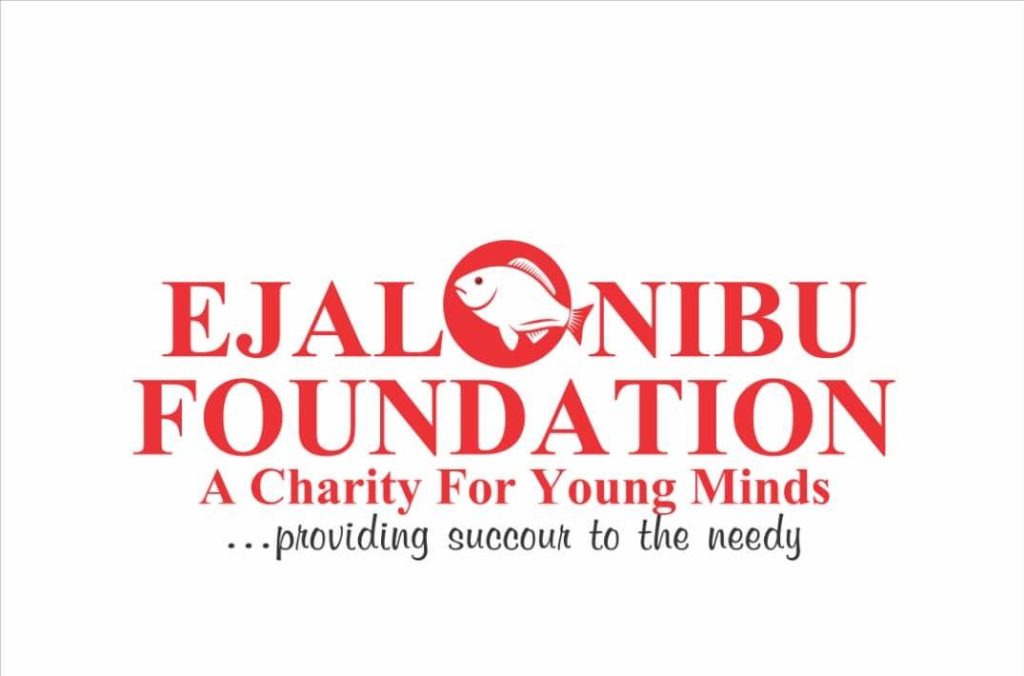As the 2025 Joint Admissions and Matriculation Board (JAMB) examination approaches, the Nigerian education sector remains entangled in regulatory challenges that continue to shape university admissions. The latest policy changes, coupled with ongoing inconsistencies in admission requirements, have sparked debates on the future of higher education in the country. From shifting age limits for university entry to the imposition of low UTME cut-off marks, the excessive control exerted by regulatory bodies such as the Federal Ministry of Education, JAMB, and the National Universities Commission (NUC) is stifling institutional autonomy. This report examines the impact of overregulation on university admissions and why urgent reforms are necessary for Nigeria’s education system to thrive.
Overregulation of University Admissions is Hurting Nigerian Higher Education

Excessive regulation of university admissions in Nigeria is stifling the purpose and growth of higher education. The tight grip of the Federal Ministry of Education, the Joint Admissions and Matriculation Board (JAMB), and the National Universities Commission (NUC) is choking institutions, students, and the nation’s educational future. Urgent reforms are needed to restore universities’ autonomy and improve educational quality.
Recently, Minister of Education, Tunji Alausa, announced a new admission policy where only gifted candidates under 16 years old who score at least 320 in the Unified Tertiary Matriculation Examination (UTME) will be considered for admission. Other candidates must be at least 16 years old by their admission date. While this policy aims to accommodate exceptional students, it exposes deeper issues of inconsistent and excessive educational policies in Nigeria.
In 2024, the government introduced an 18-year minimum age requirement for university entry without clear guidelines. The lack of a well-thought-out plan reflects the broader problem of poor policy formulation in the education sector. Although special provisions for gifted children are commendable, abrupt policy changes without strategic implementation create confusion and setbacks.
Over the past few years, Nigeria has witnessed a series of conflicting directives regarding admission age. In July, former Minister of Education Tahir Mamman set 18 years as the minimum entry age for universities, extending this requirement to NECO and WASSCE candidates. Following backlash, he revised the policy in October, permitting gifted students under 18 to sit for UTME while maintaining 16 years as the general admission age for 2025. These inconsistencies highlight the absence of a stable, research-based education framework.
Another major issue is JAMB’s role in admissions. The agency recently set the National Minimum Tolerable UTME Score at 140 for universities and 100 for polytechnics and colleges of education. These low cut-off marks undermine the meritocracy needed for a competitive academic environment. It is unreasonable for candidates with scores above 300 to be denied admission due to catchment policies while those with 140 are granted entry. This weakens academic excellence and lowers university standards.
Additionally, JAMB mandates UTME while universities conduct post-UTME screenings, creating an unnecessary burden on applicants. Some universities have reduced post-UTME to screening WASSCE and NECO results instead of conducting independent exams. Internationally, universities determine their admission standards autonomously. In the UK, top institutions require A-levels with high grades, ensuring that only the best candidates secure admission. Nigeria should follow similar best practices by allowing universities to set and enforce their own admission criteria.
The inconsistency in educational policies extends beyond admissions. Alausa recently proposed replacing the 6-3-3-4 education system with a 12-4 model, citing the need for global alignment. Over the years, Nigeria has experimented with various systems—6-5-4, 6-3-3-4, and 9-3-4—without substantial improvements. The challenge is not the model itself but the lack of adequate funding, infrastructure, and strategic planning. The current system has produced high-achieving students globally, proving that structure is not the problem—policy implementation and investment are.
Historically, Nigerian universities like the former University of Ife (now Obafemi Awolowo University) did not impose age limits for admission. Today, excessive government interference has led to a decline in quality, frequent academic strikes, and unstable academic calendars, reducing the competitiveness of Nigerian institutions in the global space.
Given that every state in Nigeria now has multiple universities, JAMB’s original purpose of ensuring fair admission distribution is no longer relevant. Universities should have full control over their admissions to foster academic excellence and autonomy.
Another critical issue is education funding. Alausa revealed that out of Nigeria’s N2.5 trillion 2025 education budget, N811.9 billion is allocated to universities, N226.7 billion to polytechnics, and N139.3 billion to colleges of education. While this may seem substantial, it is far below global standards. To illustrate, Harvard University’s endowment fund alone is valued at $53.2 billion, surpassing Nigeria’s entire 2025 federal budget of N54.9 trillion. Without adequate funding, Nigerian universities will continue to lag behind international institutions.
The Federal Government must recognize that its role in education should be facilitative rather than restrictive. Globally, governments provide funding but allow universities to operate with significant independence. In Germany, 90% of university funding comes from federal and state governments, yet universities control their admission processes. In the United States, the federal government funds higher education through student aid and research grants but does not interfere with admissions. Similarly, in France, public universities receive national funding but maintain institutional autonomy.
In contrast, Nigeria’s government overregulates tertiary education through ministries and regulatory bodies, restricting universities from functioning effectively. Instead of establishing new universities, the government should focus on consolidating existing institutions, improving infrastructure, and raising academic standards.
For Nigeria’s higher education system to improve, universities must regain control over admissions. A decentralized system that emphasizes academic excellence, transparency, and institutional autonomy will help Nigerian universities compete globally. The future of the nation’s education depends on moving away from rigid, government-controlled admissions to a system that prioritizes quality and merit.
Prosperity Reigns in Azikoro Community as Hon. Timothy Declares Free Scholarship and JAMB Forms for Natives

Azikoro, Nigeria – A wave of prosperity has swept through the Azikoro Community following the announcement by Hon. Timothy Diekivie Itiedu, a renowned politician and philanthropist, who has declared free scholarships for all higher institution natives of the community. In addition, he has pledged to provide free Joint Admissions and Matriculation Board (JAMB) forms, including mock exam registration, for aspiring students from Azikoro.
Hon. Timothy, while making the announcement, emphasized the transformative power of education by quoting John Pepe Clerk:
“Whichever way you look at it, Education is the highest implement man has yet devised for his self-improvement.”
This initiative underscores his unwavering commitment to enhancing educational opportunities and fostering community development.
A Legacy of Educational Support
Hon. Timothy’s dedication to education is not new. He has previously personally funded tuition fees for numerous students and awarded scholarships, easing financial burdens for families and creating pathways for success.
His latest declaration is being met with widespread appreciation from community representatives and beneficiaries, who lauded his efforts in investing in the education and future of Azikoro natives. They acknowledged that this initiative will not only alleviate financial struggles but also provide students with the chance to pursue their academic dreams without economic constraints.
Community Reactions and Gratitude
Members of the Azikoro Community have expressed deep gratitude for Hon. Timothy’s rare and selfless gesture. Community leaders described the move as heartwarming, recognizing its potential to significantly impact young students and families.
With this scholarship and free JAMB forms initiative, Hon. Timothy continues to set a precedent in uplifting education and empowering the next generation, reaffirming his position as a true advocate for progress and prosperity in Azikoro Community.
Ojini Grace Foundation Secures JAMB Forms for Constituents


Assures Further Assistance for Successful Candidates
Mbaitoli LGA – Saturday, February 22, 2025
The Ojini Grace Foundation, founded and sponsored by Hon. Nzeh Uchenna Ojini (Esq.), who also serves as the Chairman of the People’s Democratic Party (PDP) in Mbaitoli LGA, has once again demonstrated its commitment to educational empowerment by securing several JAMB forms for constituents.
Hon. Ojini, known for his philanthropic efforts, has consistently supported his people through various initiatives. It will be recalled that during the last festive season, his foundation distributed cows and cash gifts to men and women across Owerri Zone. Additionally, the foundation extended its generosity to orphanage homes, providing them with essential supplies and festive gifts.
On Friday, February 21, representatives of the Ojini Grace Foundation were present at the PDP Secretariat in Mbaitoli LGA to assist beneficiaries from different wards in properly filling out their JAMB registration forms.
The foundation has remained steadfast in its mission of human capital development, offering support to the needy and ensuring that smiles remain on the faces of constituents. Speaking on the initiative, Hon. Ojini emphasized the importance of helping others, stating:
“There is no greater purpose in life than bringing joy to others in any way we can.”
As the beneficiaries look forward to writing their exams, Hon. Ojini has assured them of continued support in their academic journey.
Congratulations to all beneficiaries.
God bless the Ojini Grace Foundation. Ya gazie!
Ejalonibu Foundation Distributes 200 UTME Forms in Badagry

Badagry, Lagos – Sunday, February 23, 2025
In a bid to support education development in Badagry, a non-governmental organization, Ejalonibu Foundation, has distributed 200 free Unified Tertiary Matriculation Examination (UTME) forms to students in the area.
Speaking at the distribution event, the founder of the foundation, Wusu Ejalonibu, emphasized that the initiative is aimed at encouraging young people to pursue their academic dreams.
“Every year, we provide JAMB forms to interested students to support their educational aspirations. Beyond this, we also organize a pre-JAMB training program to prepare students adequately for the examination, ensuring they approach it with confidence,” he said.
Ejalonibu further revealed that the foundation has a reward system for high-scoring candidates, particularly those aspiring to study medicine, law, mass communication, and education. Exceptional students in these fields will be offered scholarships as part of the foundation’s commitment to academic excellence.
Highlighting the importance of education, he noted:
“As a responsible and responsive NGO, we prioritize education because no nation can develop without investing in its citizens’ learning. This initiative serves as both support and motivation for students to take their studies seriously.”
Ejalonibu encouraged the beneficiaries to remain focused on their academic pursuits, stressing that dedication and hard work are key to achieving their future ambitions.
This initiative aligns with the foundation’s broader mission to uplift underprivileged students and provide them with opportunities to excel.
God bless Ejalonibu Foundation!
Conclusion
Nigeria’s higher education system stands at a crossroads, where excessive regulation threatens to undermine academic excellence and institutional growth. While the government plays a crucial role in funding and oversight, its overreach into university admissions has created unnecessary bottlenecks that hinder progress. To remain competitive globally, Nigerian universities must regain their autonomy in determining admission criteria, fostering a system built on merit, transparency, and institutional independence. Without these reforms, the nation’s education sector will continue to struggle, leaving students, institutions, and the country’s future at a disadvantage. Now is the time to shift from rigid government control to a more flexible and progressive educational framework that prioritizes quality over bureaucracy.

